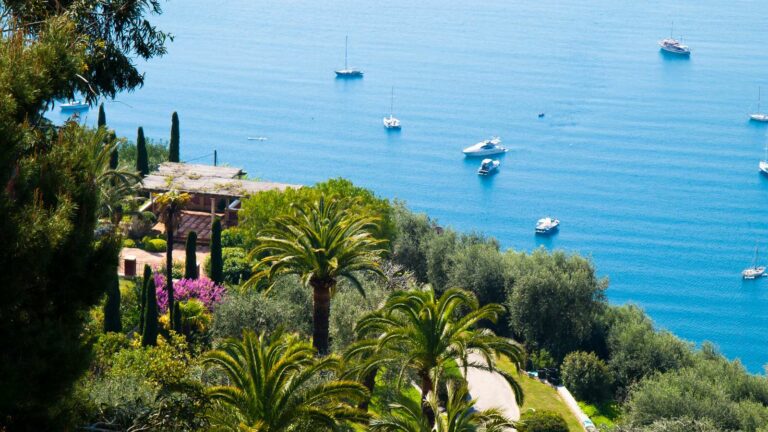Bare ownership is a term used in real estate law to refer to the ownership of a property without the usufruct. In other words, the bare owner owns the property but does not have the right to use it (for example, to occupy it or to collect rent) because this right belongs to the usufructuary.
This situation is called separation of ownership, which allows the division of the attributes of ownership of a property between a bare owner and a usufructuary. Although separation of ownership is often used in the context of estate planning, it can also be used in other contexts, such as the sale of real estate.
Bare ownership, usus, fructus and abusus: find out more
The concept of bare ownership is based on the distinction between the three attributes of property: usus, fructus, and abusus.
- Usus is the right to use the property
- Fructus is the right to receive the income generated by the property (rent, dividends, etc.).
- Abusus is the right to dispose of the property (sell, give, bequeath).
Bare ownership and usufruct: the differences
The distinction between bare ownership and usufruct is important in real estate law.
- The term bare ownership refers to holding the right of ownership in a real property, without having the use of it. The bare owner can therefore be considered to be the owner, but he/she cannot live in the property or collect the rents.
- On the other hand, the usufructuary has the right to use the property. The usufructuary can live in it, come there on vacation and receive the rents.
- The holder of the full ownership of the property owns the real estate and holds both the bare ownership and the usufruct.
The usufruct is the combination of the rights of usus and fructus. This is the right to use and benefit from a property without being the owner. The usufructuary can act as the true owner of the property and receive the revenues. On the other hand, the bare owner is the true owner of the property but cannot use it or receive any income from it, until the end of the usufruct.
When the property is divided into usufruct and bare ownership, the usufructuary has the right to use the property and to receive the rents, while the bare owner has only the right to dispose of the property but without using it or receiving rents.
What is the separation of ownership?
The separation of the right of ownership is a legal concept that involves dividing the attributes of ownership (usus, fructus and abusus) of a property between two or more distinct persons. In general, this division is made between the usufruct and the bare ownership.
The usufructuary has the right to use and receive the rents from the property, while the bare owner has the right to dispose of the property, that is, to sell, give or bequeath it. This division can be carried out voluntarily or by force, for example in the event of a seizure by court order.
Let’s discuss your projects!
Request your free personalized analysis, and we will respond within 48 hours.

What is the difference between bare ownership and full ownership?
The difference between bare ownership and full ownership consists in the attributes of ownership of a property. Full ownership gives the holder all the attributes of the right of ownership (usus, fructus and abusus), whereas bare ownership only allows the exercise of abusus, that is, the right to dispose of the property.
Bare ownership is often used in the context of a donation or a transfer of assets. For example, a parent may decide to give the bare ownership a home to his/her children while retaining the usufruct until his/her death. In this way, the children acquire the bare ownership of the property without having to pay the full value of the property. The parent retains control of the property until his/her death and can continue to use the property and receive the benefits.
On the other hand, the parent may decide to sell the bare ownership of the property, whether it is a primary residence or a second home, in order to have the enjoyment of the property until his/her death, either to live in or to rent out and collect rent. The parent then receives a large sum of capital that can be used to improve his/her standard of living, to make a donation while still living and to enjoy leisure time.
The different types of bare ownership
There are different types of bare ownership, which differ in particular by the duration of the usufruct or the terms of the sale. Here are some examples:
- Temporary bare ownership: in this case, the seller sells the bare ownership for a set period of time, which can range from a few years to several decades. At the end of this period, the usufruct reverts to the bare owner. This form of bare ownership can be used to receive a large sum of money immediately, while keeping the right to use the property for a given period.
- The life annuity: in this case, the seller sells the bare ownership while keeping the option to live in it until his/her death (without the ability to rent it out, because the seller does not have the fructus). The traditional life annuity allows the seller to receive a sum of money (called the lump sum) as well as a taxable life annuity (land income).
- Deferred sale: in this case, the seller sells the bare ownership at a fixed price, but the payment is spread over a given period. This form of bare ownership can be attractive for selling a property without having to wait for the full payment of the sale price.
- The sale with reserve of usufruct: in this case, the seller sells the bare ownership while retaining the usufruct of the property until his/her death, and can continue to receive the rental income generated by the property. This form of bare ownership is especially useful for enjoying retirement while maintaining a supplementary income.
Who pays the property tax, the usufructuary or bare owner?
The status of bare owner involves the ownership of a property in the form of bare ownership, that is, owning a property without being able to use it. Bare ownership is considered a real estate asset in its own right, even if the bare owner does not have full control over the property. Payment of the property tax is agreed between the parties at the time of the proposal of the bare ownership sale.
Who should pay for major renovation work, the usufructuary or the bare owner?
According to Article 606 of the French Civil Code, major repairs are the responsibility of the property owner, that is, the bare owner. Major repairs are those that affect the structure or solidity of the property, such as roofing, foundation, or major construction work. They should not be confused with routine maintenance, which is the responsibility of the usufructuary, such as painting, plumbing, or electrical work.
Selling bare ownership as a way to enjoy your retirement
Bare ownership is a useful solution for those who wish to enjoy their retirement. In fact, selling the bare ownership of a property allows the seller to receive the capital from the sale while retaining the usufruct of the property until his/her death. Here are some of the advantages of bare ownership:
- A bare ownership sale allows the seller to immediately receive of a large sum of capital. This can be used to finance personal projects, to improve the seller’s financial situation or to build up savings, and to enjoy life to the fullest.
- The bare ownership sale of a primary residence is tax-free. The large amount of capital received is therefore exempt from taxes. This is also one of the advantages when compared to traditional life annuities, where the life annuity income is taxable.
- Bare ownership can help prepare for the transfer of financial assets. By selling the bare ownership, the seller can make a donation during his/her lifetime and enjoy the life to the fullest. More information about donations is available at: impots.gouv.fr.
- Bare ownership allows you to benefit from additional income. By retaining the usufruct of the property, the seller can continue to receive rental income or live in the property, which can serve as an additional source of income for retirement.
Bare ownership is therefore an interesting solution for enjoying retirement by receiving a large amount of capital while retaining the option to live in or to rent the property until your death.
Request your personalized and free estimate.
Request your free personalized analysis, and we will respond within 48 hours.




